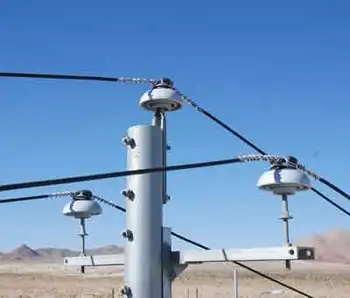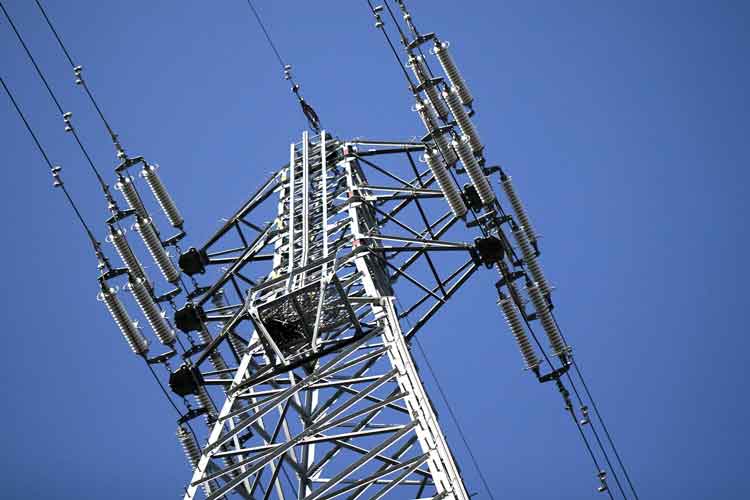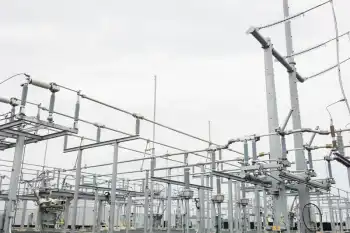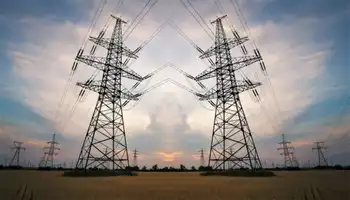Frustration Mounts as Houston's Power Outage Extends

NFPA 70e Training - Arc Flash
Our customized live online or in‑person group training can be delivered to your staff at your location.

- Live Online
- 6 hours Instructor-led
- Group Training Available
Houston Power Outage Heatwave intensifies a prolonged blackout, straining the grid and infrastructure resilience; emergency response, cooling centers, and power restoration efforts race to protect vulnerable residents amid extreme temperatures and climate risks.
Key Points
A multi-day blackout and heatwave straining Houston's grid, limiting cooling, and prompting emergency response.
✅ Fourth day without power amid dangerous heat
✅ Grid failures expose infrastructure vulnerabilities
✅ Cooling centers, aid groups support vulnerable residents
Houston is enduring significant frustration and hardship as a power outage stretches into its fourth day amid a sweltering heatwave. The extended blackout has exacerbated the challenges faced by residents in one of the nation’s largest and most dynamic cities, underscoring the critical need for reliable infrastructure and effective emergency response systems.
The power outage began early in the week, coinciding with a severe heatwave that has driven temperatures to dangerous levels. With the city experiencing some of the highest temperatures of the year, the lack of electricity has left residents without essential cooling, contributing to widespread discomfort and health risks. The heatwave has placed an added strain on Houston's already overburdened power grid, which has struggled to cope with the soaring demand for air conditioning and cooling.
The prolonged outage has led to escalating frustration among residents. Many households are grappling with sweltering indoor temperatures, leading to uncomfortable living conditions and concerns about the impact on vulnerable populations, including the elderly, young children, and individuals with pre-existing health conditions. The lack of power has also disrupted daily routines, as morning routine disruptions in London demonstrate, including access to refrigeration for food, which has led to spoilage and further complications.
Emergency services and utility companies have been working around the clock to restore power, but progress has been slow, echoing how Texas utilities struggled to restore power during Hurricane Harvey, as crews contended with access constraints. The complexity of the situation, combined with the high demand for repairs and the challenging weather conditions, has made it difficult to address the widespread outages efficiently. As the days pass, the situation has become increasingly dire, with residents growing more impatient and anxious about when they might see a resolution.
Local officials and utility providers have been actively communicating with the public, providing updates on the status of repairs and efforts to restore power. However, the communication has not always been timely or clear, leading to further frustration among those affected. The sense of uncertainty and lack of reliable information has compounded the difficulties faced by residents, who are left to manage the impacts of the outage with limited guidance.
The situation has also raised questions about the resilience of Houston’s power infrastructure. The outage has highlighted vulnerabilities in the city's energy grid, similar to how a recent windstorm caused significant outages elsewhere, which has faced previous challenges but has not experienced an extended failure of this magnitude in recent years. The inability of the grid to withstand the extreme heat and maintain service during a critical time underscores the need for infrastructure improvements and upgrades to better handle similar situations in the future.
In response to the crisis, community organizations and local businesses have stepped up to provide support to those in need, much like Toronto's cleanup after severe flooding mobilized volunteers and services, in order to aid affected residents. Cooling centers have been established to offer relief from the heat, providing a respite for individuals who are struggling to stay cool at home. Additionally, local food banks and charitable organizations are distributing essential supplies to those affected by food spoilage and other challenges caused by the power outage.
The power outage and heatwave have also sparked broader discussions about climate resilience and preparedness. Extreme weather events and prolonged heatwaves are becoming increasingly common due to climate change, as strong winds knocked out power across the Miami Valley recently, raising concerns about how cities and infrastructure systems can adapt to these new realities. The current situation in Houston serves as a stark reminder of the importance of investing in resilient infrastructure and developing comprehensive emergency response plans to mitigate the impacts of such events.
As the outage continues, there is a growing call for improved strategies to manage power grid failures, with examples like the North Seattle outage affecting 13,000 underscoring the need, and better support for residents during crises. Advocates are urging for a reevaluation of emergency response protocols, increased investment in infrastructure upgrades, and enhanced communication systems to ensure that the public receives timely and accurate information during emergencies.
In summary, Houston's power outage, now extending into its fourth day amid extreme heat, has caused significant frustration and hardship for residents. The prolonged disruption has underscored the need for more resilient energy infrastructure, as seen when power outages persisted for hundreds in Toronto, and effective emergency response measures. With temperatures soaring and the situation continuing to unfold, the city faces a critical challenge in restoring power, managing the impacts on its residents, and preparing for future emergencies. The crisis highlights broader issues related to infrastructure resilience and climate adaptation, emphasizing the need for comprehensive strategies to address and mitigate the effects of extreme weather events.











